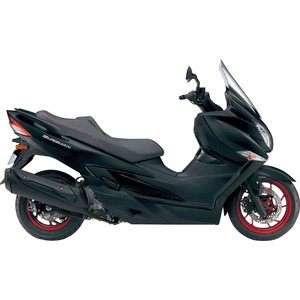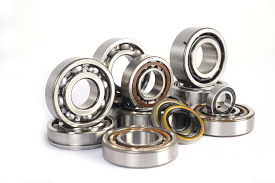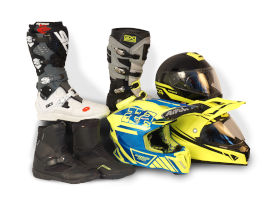Suzuki AN 400 Burgman (2017–2022): The Maxi-Scooter That Redefines Practical Luxury
For riders seeking a blend of urban practicality, touring comfort, and understated sophistication, the Suzuki AN 400 Burgman (2017–2022) stands as a benchmark in the maxi-scooter segment. Over its six-year production run, this generation refined the Burgman’s reputation as a "two-wheeled luxury sedan," offering surprising agility for its size and a feature set that prioritizes rider convenience. Let’s dissect why this Burgman remains a compelling choice for commuters and touring enthusiasts alike.
Design & Ergonomics: A Masterclass in Functional Elegance
The Burgman 400’s design language walks a tightrope between muscularity and refinement. The 2017–2022 model sharpened the bodywork with angular LED headlights (introduced in later years), a slimmer waistline, and an upswept windscreen that manages to look sporty while deflecting airflow effectively. The dual-tone paint schemes—like Metallic Matte Sword Silver or Matte Fibroin Gray—add a touch of premium appeal, resisting the "plastic fantastic" vibe of cheaper scooters.
Key design highlights: - 62-liter underseat storage: Swallows two full-face helmets + groceries or a weekend bag. The compartment is lighted, a small but thoughtful touch. - Adjustable ergonomics: The seat height (755 mm / 29.7") is accessible for shorter riders, while the telescoping rider backrest (with 25 mm / 1" of adjustment) caters to taller frames. - Floorboard flexibility: Concave footboards allow multiple riding positions—stretch your legs forward for highway cruising or tuck them back for urban agility.
The cockpit feels car-like, with analog gauges flanking a digital display showing fuel economy, ambient temperature, and even a freeze warning. Controls are intuitive, though the T-handle parking brake near the ignition requires a slight reach.
Engine & Performance: Smooth Operator Meets Surprising Punch
At its core lies a 399cc liquid-cooled, DOHC single-cylinder engine paired with Suzuki’s proven CVT. While max power sits at 33 HP (24 kW) and torque at 35.2 Nm (26 lb-ft), the Burgman’s strength lies in its linear power delivery. Throttle response is crisp but never jerky—a blessing in stop-and-go traffic.
Real-world performance notes: - 0–60 km/h (0–37 mph): ~4.5 seconds—enough to gap most cars off the line. - Top speed: ~145 km/h (90 mph), though the sweet spot is 90–110 km/h (56–68 mph) where the engine feels relaxed. - Fuel efficiency: Averaged 3.3 L/100 km (71 mpg) during mixed riding, translating to a 400 km (248 mi) range from its 13.5L (3.57 US gal) tank.
The CVT’s belt drive is virtually maintenance-free, though heavy riders might notice a slight lag when accelerating uphill. For solo riders, the Burgman feels sprightly; with a passenger, it maintains composure but demands more planning for overtakes.
Handling & Comfort: Big-Scooter Agility
Weighing 218–222 kg (480–489 lbs), the Burgman isn’t a featherweight, but its low center of gravity and 41mm telescopic forks inspire confidence. The switch to a 15-inch front wheel (from 14" in pre-2017 models) improved straight-line stability without sacrificing flickability.
Suspension specifics: - Front travel: 109 mm (4.3") – absorbs potholes gracefully. - Rear travel: 99 mm (3.9") with 7-way preload adjustment – firm enough for two-up touring, plush for solo rides.
Braking is handled by dual 260mm front discs and a 210mm rear disc, all with ABS. Bite is progressive rather than aggressive, matching the Burgman’s relaxed character.
Features & Technology: Touring-Ready Out of the Box
Suzuki packed this generation with amenities that shame many motorcycles: - Dual LED headlights: Brighter and more efficient than previous halogens. - 12V DC outlet: Inside the right front compartment (3.5L capacity) for charging devices. - Keyless ignition (on select years): A magnetic security cover thwarts tampering. - Suzuki Eco Drive Indicator: Teaches fuel-efficient riding via an LED prompt.
The adjustable windscreen deserves special praise. Even at 110 km/h (68 mph), turbulence is minimal—no need for aftermarket add-ons unless you’re exceptionally tall.
Competition: How the Burgman Stacks Up
1. Yamaha XMAX 400
- Pros: Slightly sportier handling, TFT display.
- Cons: 56L underseat storage < Burgman’s 62L, firmer seat.
- Verdict: The XMAX appeals to thrill-seekers; the Burgman pampers.
2. Honda Forza 350
- Pros: 29% cheaper, 60 km/L fuel economy.
- Cons: 22% less power, cramped for riders over 180 cm (5’11").
- Verdict: Budget-friendly but not a true maxi-scooter rival.
3. BMW C 400 X
- Pros: Premium badge, dynamic ASC traction control.
- Cons: 35% pricier, questionable reliability history.
- Verdict: Overpriced for comparable specs.
The Burgman’s edge? It balances price, practicality, and panache like no other. While not the sportiest or cheapest, it’s the most versatile.
Maintenance: Keeping Your Burgman in Peak Form
Ownership costs are modest if you follow Suzuki’s schedule: - Oil changes: Every 6,000 km (3,728 mi) using 1.3L of 10W-40 (MOTOPARTS.store recommends Motul 7100 10W-40 for extended drain intervals). - Drive belt: Inspect every 12,000 km (7,456 mi). Replace with our Gates Powerlink CVT Belt at 24,000 km. - Coolant: Flush every 2 years/20,000 km with Suzuki Coolant 3.0. - Tire pressure: 175 kPa (25 psi) front / 200 kPa (29 psi) rear. Consider Michelin City Grip 2 tires for wet-weather confidence.
Pro tip: The NGK CR7EIX iridium spark plug (replacement every 32,000 km) enhances cold starts and fuel efficiency.
Final Thoughts: The Scooter That Thinks It’s a Tourer
The 2017–2022 Suzuki Burgman 400 isn’t just a scooter—it’s a lifestyle enabler. Whether threading through city traffic, carving coastal roads, or hauling a week’s groceries, it does so with unflappable competence. While rivals may excel in niches, the Burgman remains the gold standard for those who refuse to compromise.
At MOTOPARTS.store, we’re committed to keeping your Burgman running as smoothly as the day you fell in love with it. Explore our curated selection of OEM-compatible maintenance kits, premium tires, and storage accessories tailored for maxi-scooter enthusiasts. Your next adventure starts here.
Specifications sheet
| Engine | |
|---|---|
| Stroke: | Four-stroke |
| Max power: | 24 kW | 32.0 hp |
| Max torque: | 35 Nm |
| Fuel system: | Fuel Injection |
| Max power @: | 6300 rpm |
| Displacement: | 399 ccm |
| Max torque @: | 4900 rpm |
| Bore x stroke: | 81.0 x 77.6 mm (3.2 x 3.1 in) |
| Configuration: | Single |
| Cooling system: | Liquid |
| Compression ratio: | 10.6:1 |
| Number of cylinders: | 1 |
| Valves per cylinder: | 4 |
| Dimensions | |
|---|---|
| Wheelbase: | 1580 mm (62.2 in) |
| Dry weight: | 218 |
| Wet weight: | 222 |
| Seat height: | 755 mm (29.7 in) |
| Overall width: | 765 mm (30.1 in) |
| Overall height: | 1350 mm (53.1 in) |
| Overall length: | 2235 mm (88.0 in) |
| Ground clearance: | 125 mm (4.9 in) |
| Fuel tank capacity: | 13.5 L (3.6 US gal) |
| Drivetrain | |
|---|---|
| Belt type: | V-belt drive |
| Final drive: | belt |
| Transmission: | CVT automatic, centrifugal clutch |
| Maintenance | |
|---|---|
| Rear tire: | 150/70-13 |
| Engine oil: | 10W40 |
| Front tire: | 120/70-15 |
| Idle speed: | 1450 ± 100 RPM |
| Brake fluid: | DOT 4 |
| Spark plugs: | NGK CR7E, NGK CR7EIX |
| Spark plug gap: | 0.8 |
| Coolant capacity: | 1.95 |
| Forks oil capacity: | 0.602 |
| Engine oil capacity: | 1.3 |
| Engine oil change interval: | Every 5000 km or 2 years |
| Valve clearance (intake, cold): | 0.10–0.20 mm |
| Valve clearance check interval: | 24,000 km (15,000 mi) |
| Valve clearance (exhaust, cold): | 0.20–0.30 mm |
| Recommended tire pressure (rear): | 2.0 bar (29 psi) solo, 2.5 bar (36 psi) with passenger |
| Recommended tire pressure (front): | 1.75 bar (25 psi) |
| Additional Features | |
|---|---|
| Lighting: | LED headlights and taillights |
| Security: | Magnetic ignition cover, chain lock gate |
| Instrumentation: | Analog speedometer/tachometer, digital display (odometer, fuel gauge, coolant temp, clock) |
| Storage capacity: | 62-liter under-seat compartment + 3.5L/2.8L front compartments |
| Chassis and Suspension | |
|---|---|
| Frame: | High-tensile steel-tube underbone |
| Rear tire: | 150/70-13m/c (64s) |
| Front tire: | 120/70-15m/c (56s) |
| Rear brakes: | Single 210 mm disc, ABS |
| Front brakes: | 2 x 260 mm discs, ABS |
| Rear suspension: | Link-type monoshock, adjustable preload |
| Front suspension: | 41mm telescopic fork, coil spring, oil damped |
| Rear wheel travel: | 99 mm (3.9 in) |
| Front wheel travel: | 109 mm (4.3 in) |



















